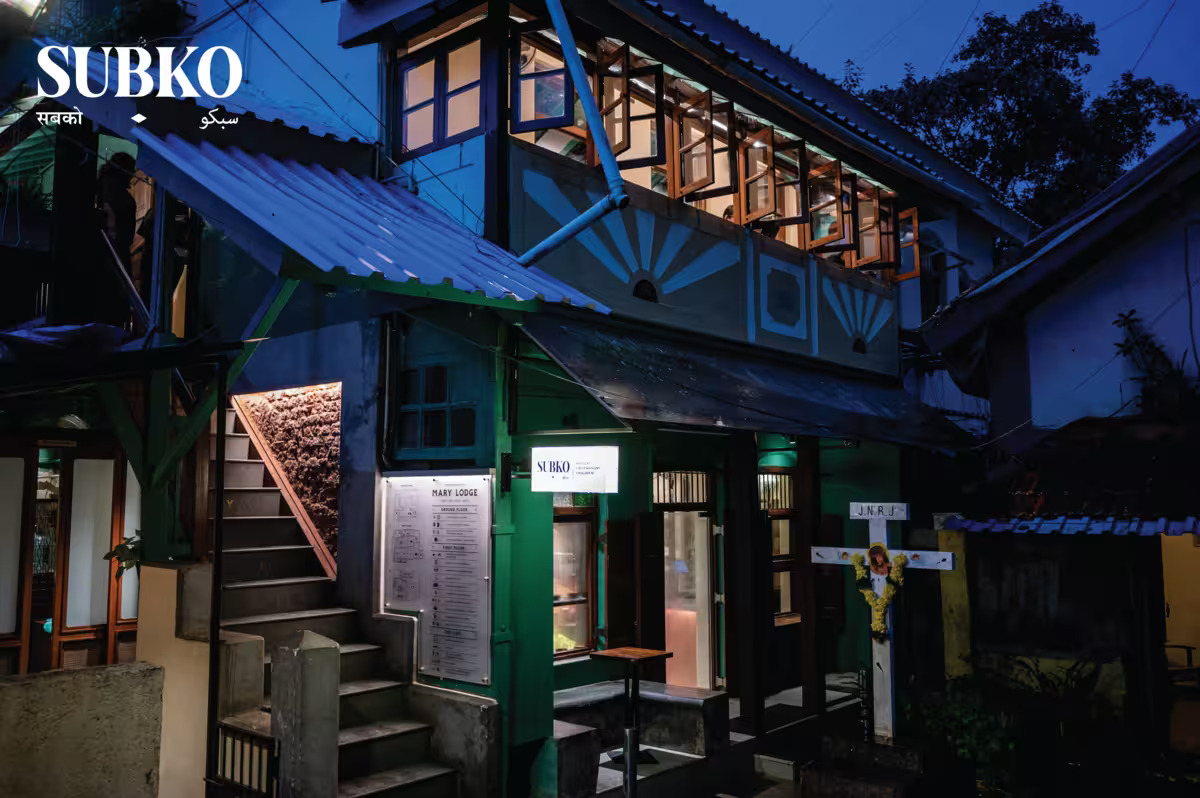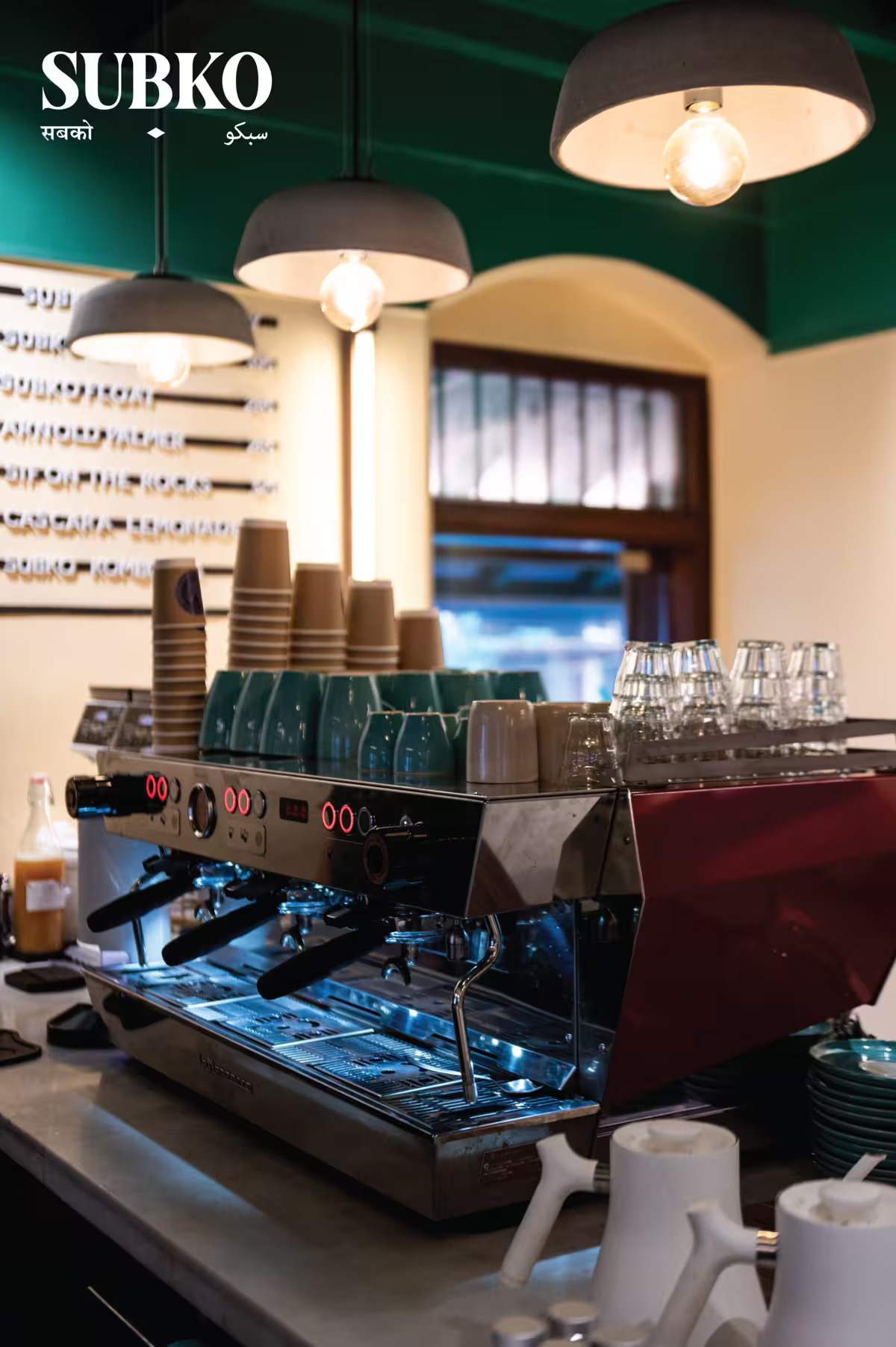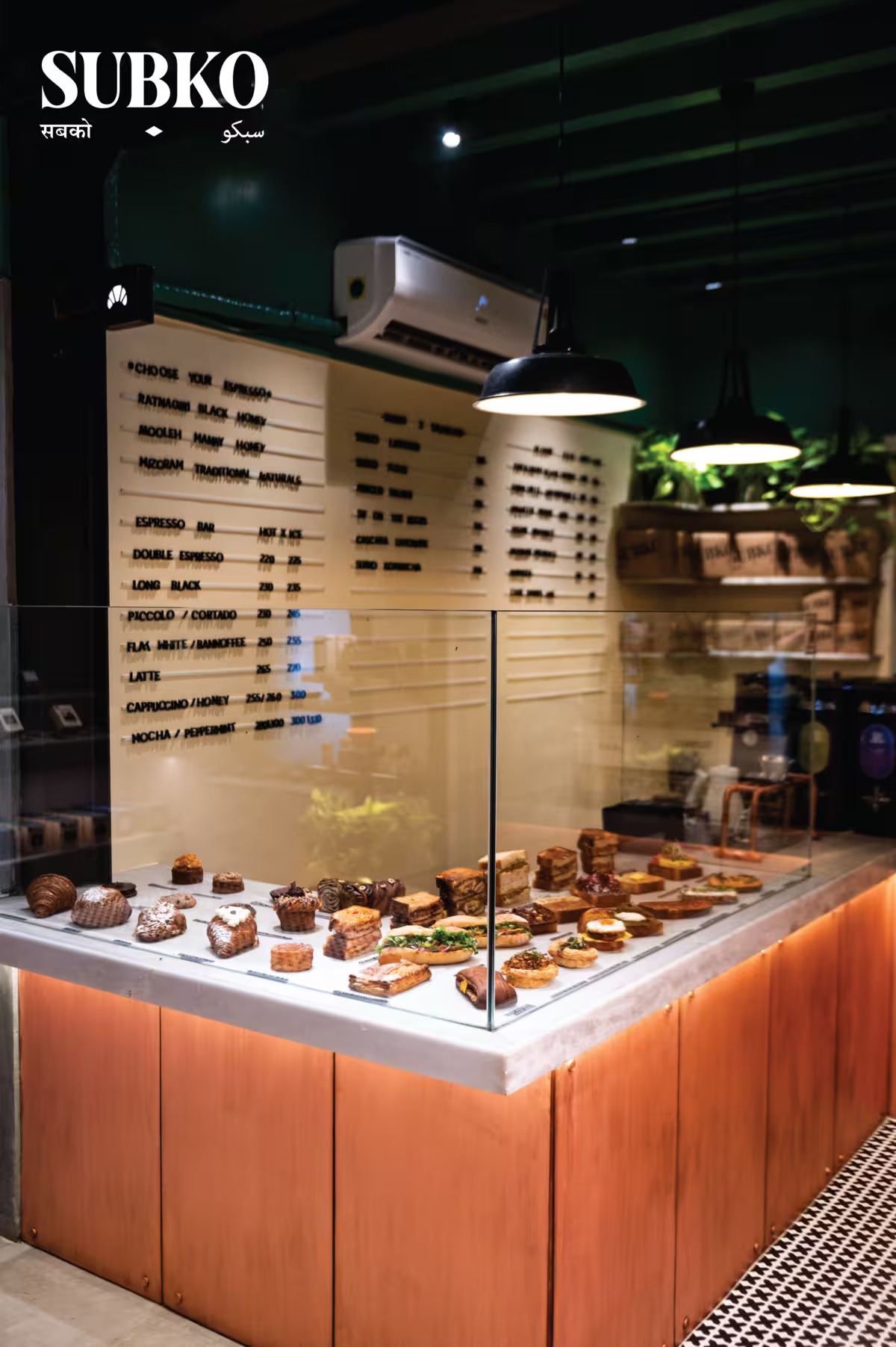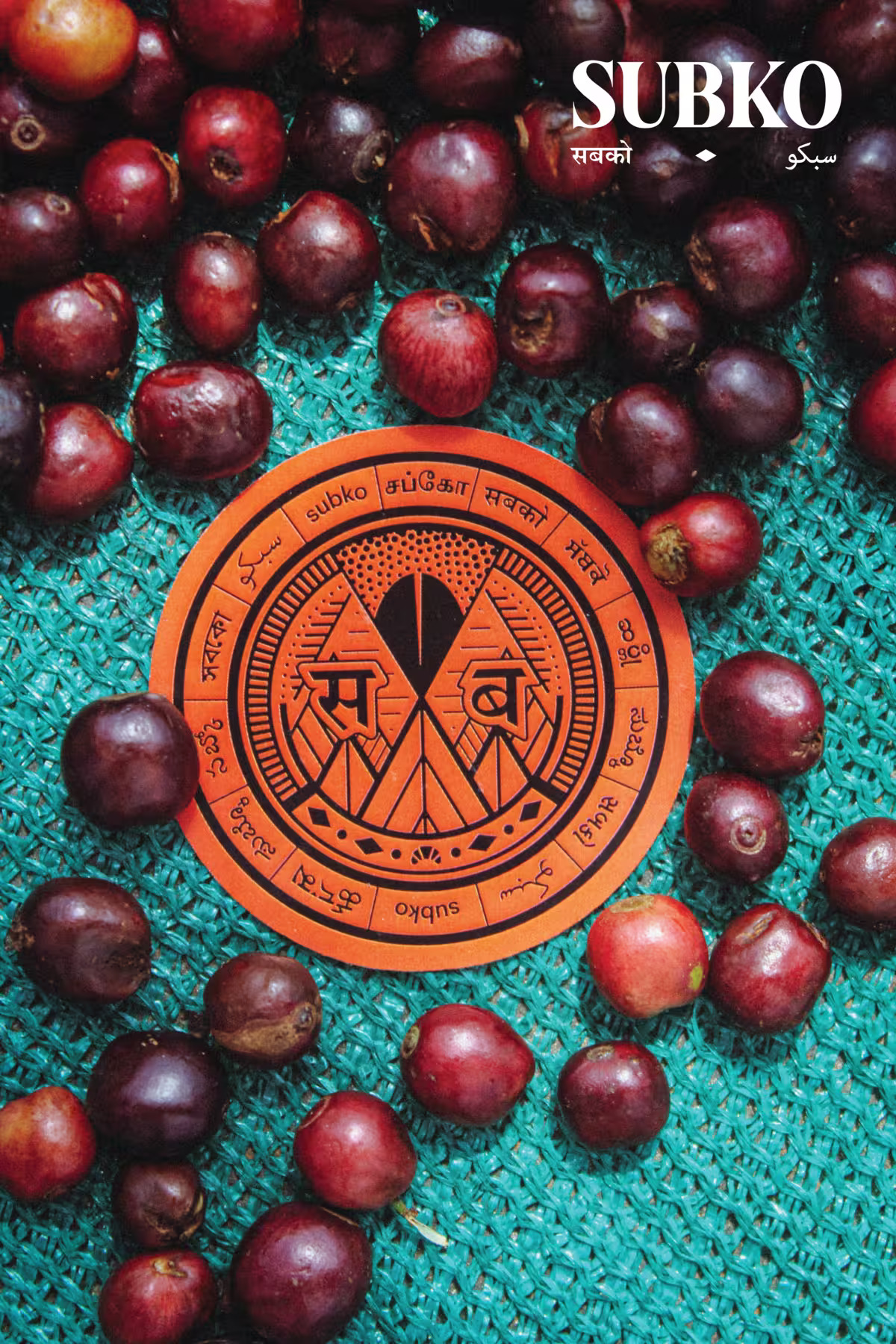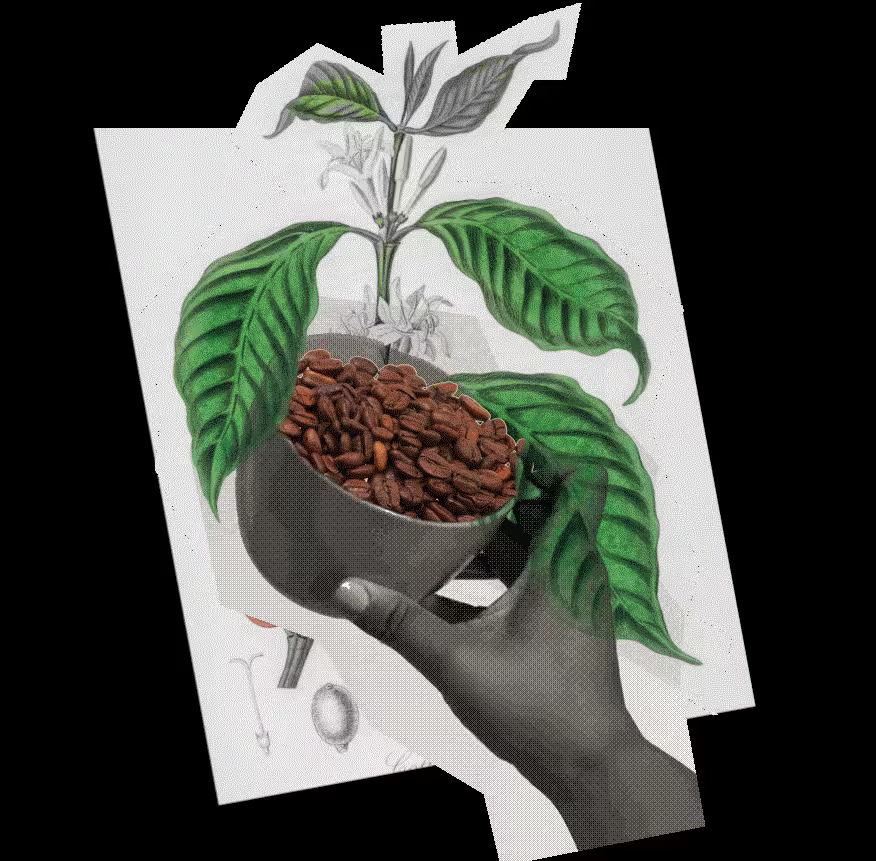Subko: Sustainable Coffee from the South Asian Subcontinent
A case study by Shannon Colin and the Subko Coffee Team
September 25, 2024
Key Takeaways
- Subko, a coffee company in India, employs sustainable farming methods, including agroforestry, interplanting, biodiversity-friendly techniques, and shade-growing, to enhance soil health, sequester carbon, and promote a balanced ecosystem. These practices help offset carbon emissions and support environmental sustainability.
- To address the vulnerabilities of Arabica beans given climate change, Subko embraces a diverse range of coffee bean varieties, including Robusta and Liberica. This approach ensures resilience and sustainability in their supply chain, while also providing unique flavor profiles and maintaining high-quality coffee production.
- Subko is dedicated to improving the livelihoods of coffee farmers through direct trade, fair compensation, and community-focused initiatives like the VLGE project and the Subko Microlot Festival. These efforts promote economic growth, diversification, and social equity within the coffee farming communities.
How we Discovered Subko
As someone with many relatives across India, I had the pleasure of visiting Bombay a few years ago to meet my now-husband's family. I told them about my mission to find the best cup of coffee wherever I go. One day, we took a motorcycle ride to Subko, where I fell in love with the many varieties of coffee I had never seen before in America, like Robusta beans. I savored the coffee paired with Subko’s delicious baked goods and caught up with new friends and family in Subko’s garden.
I returned home with 20 bags of Subko coffee to share with my American family. Now, every trip to India includes a visit to Subko and many bags of beans in tow.
It was an honor to interview Subko for this case study. What follows is a question-and-answer exploration of Subko’s sustainable business practices and future plans. Enjoy!
Coffee as a Carbon Sink
Question: Coffee is one of the food products with the highest amount of GHG emissions today. Coffee can, however, be a sustainably grown crop that serves as a carbon sink. Tell us about the ways Subko supports sustainable coffee development.
Subko’s Answer: At Subko, we source our beans directly from farms in Andhra Pradesh, including our own Subko VLGE and partner farms like West Godavari, Paderu, and Ganda. These farms employ agroforestry, interplanting, biodiversity-friendly methods, and shade-growing, which require less water and support bird habitats. These practices enhance soil health, sequester carbon, and foster a balanced ecosystem. Our commitment to these sustainable methods helps offset carbon emissions and promotes environmental sustainability.
Subko is dedicated to transforming coffee farming into a model of environmental stewardship. By partnering with farms that integrate trees and other crops into coffee plantations, we support agroforestry systems that enhance carbon sequestration. Trees absorb CO2 from the atmosphere, storing carbon in their biomass and the soil. This not only mitigates climate change but also improves soil health and biodiversity. Our farms avoid the pitfalls of monocropping by interplanting coffee with other crops, reducing the need for chemical fertilizers and pesticides. Shade-growing practices further contribute to water conservation and provide habitats for various species, promoting biodiversity. These comprehensive approaches align with our vision of coffee production that respects and nurtures the environment.
Bean Variety
Question: Research suggests that Arabica beans are less resilient to climate change, and that Robusta, Liberica, and other varieties could be more resilient to a drier, hotter world. We have had the pleasure of tasting Subko’s non-Arabica bean varieties and we LOVE them. How does Subko think about genetic bean variety diversity in your business planning?
Subko’s Answer: Subko embraces genetic bean variety diversity to ensure sustainability and resilience in our supply chain. We are proud to also offer non-Arabica bean varieties that not only adapt better to climate change but also provide unique and delightful flavor profiles. Our business planning includes ongoing research and partnerships to diversify our bean varieties, ensuring a sustainable future for coffee production. At Subko, we recognize the importance of diversifying our coffee bean portfolio to hedge against the adverse effects of climate change.
Arabica beans, known for their superior flavor, are particularly sensitive to temperature and precipitation changes. To address this vulnerability, we have incorporated more robust varieties like Robusta and Liberica into our offerings. These beans not only thrive in harsher conditions but also add unique taste profiles to our selection. We continuously invest in research and collaborate with agricultural experts to explore and promote resilient coffee varieties. This strategic approach ensures that we can maintain high-quality coffee production while adapting to an evolving climate. By prioritizing genetic diversity, we safeguard our business and support the long-term viability of coffee farming communities.
In the Indian Specialty Coffee Industry, the name Ratnagiri Estate evokes recognition for steadily elevating excellence, innovation, and a devotion to sustainability. Over the years, Ratnagiri Estate's legacy has grown as flag bearers of specialty coffee growing, processing, and representation overseas. Today, we are honored to tell their story with Project Pearl — a microlot program featuring 8 exclusive microlots from Ratnagiri Estate. Salawara Estate, meaning "a string of blessings," was established in the 1880s and has been run by the Gowda family for three generations. Their specialty robusta, intercropped with diverse produce, highlights sensory distinction. Surrounded by five man-made lakes, Salawara Estate practices sustainable irrigation. Similarly, Komal Sable and Akshay Dasrath run Mooleh Maney Estate, producing sustainable, high-quality coffee in North Coorg.
To hedge against climate change, Subko incorporates robust varieties like Robusta and Liberica, investing in research and collaborating with experts to promote resilient coffee varieties. This approach ensures we maintain high-quality coffee production while supporting the long-term viability of coffee farming communities.
Subko Speciality Coffee
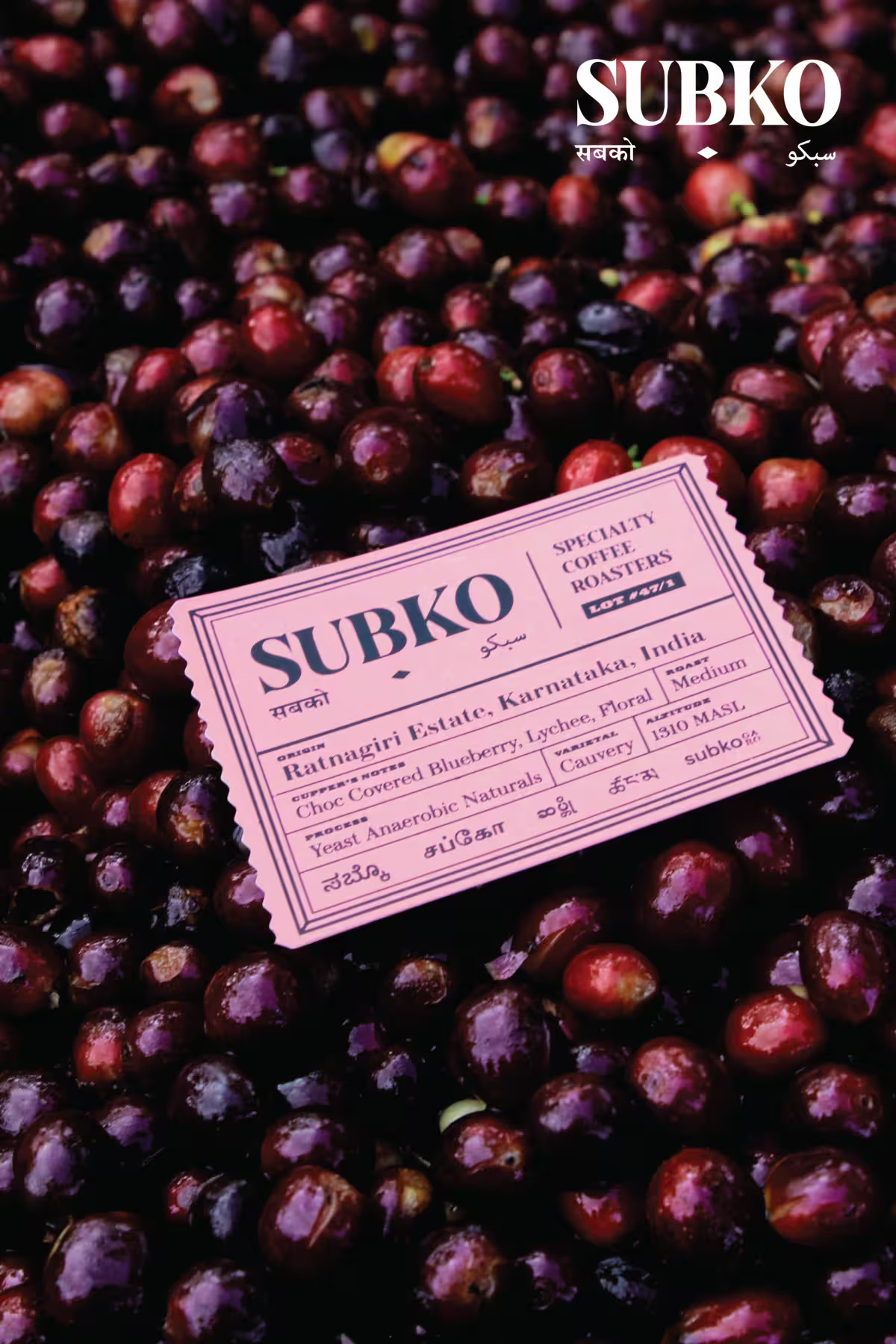
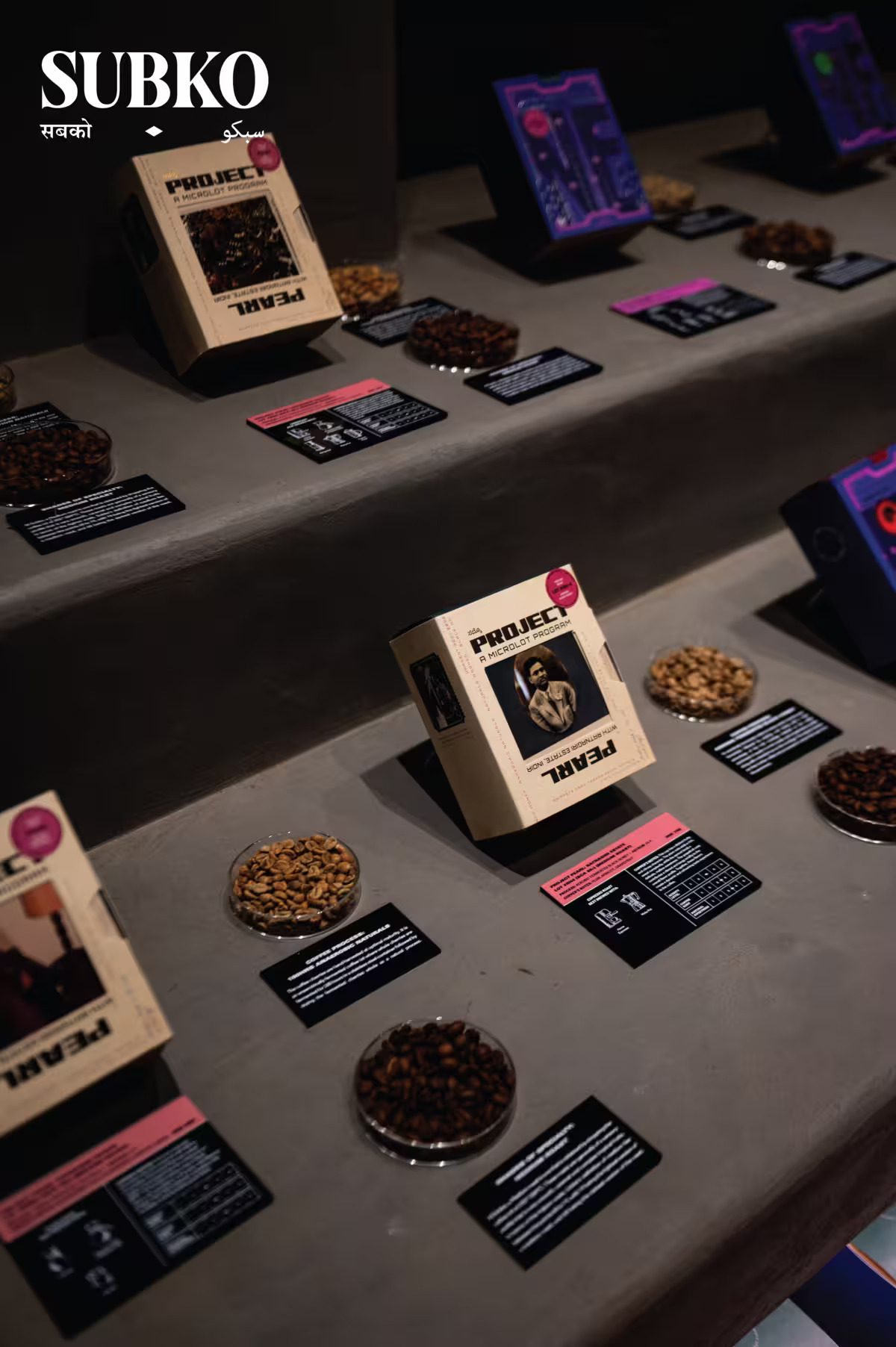
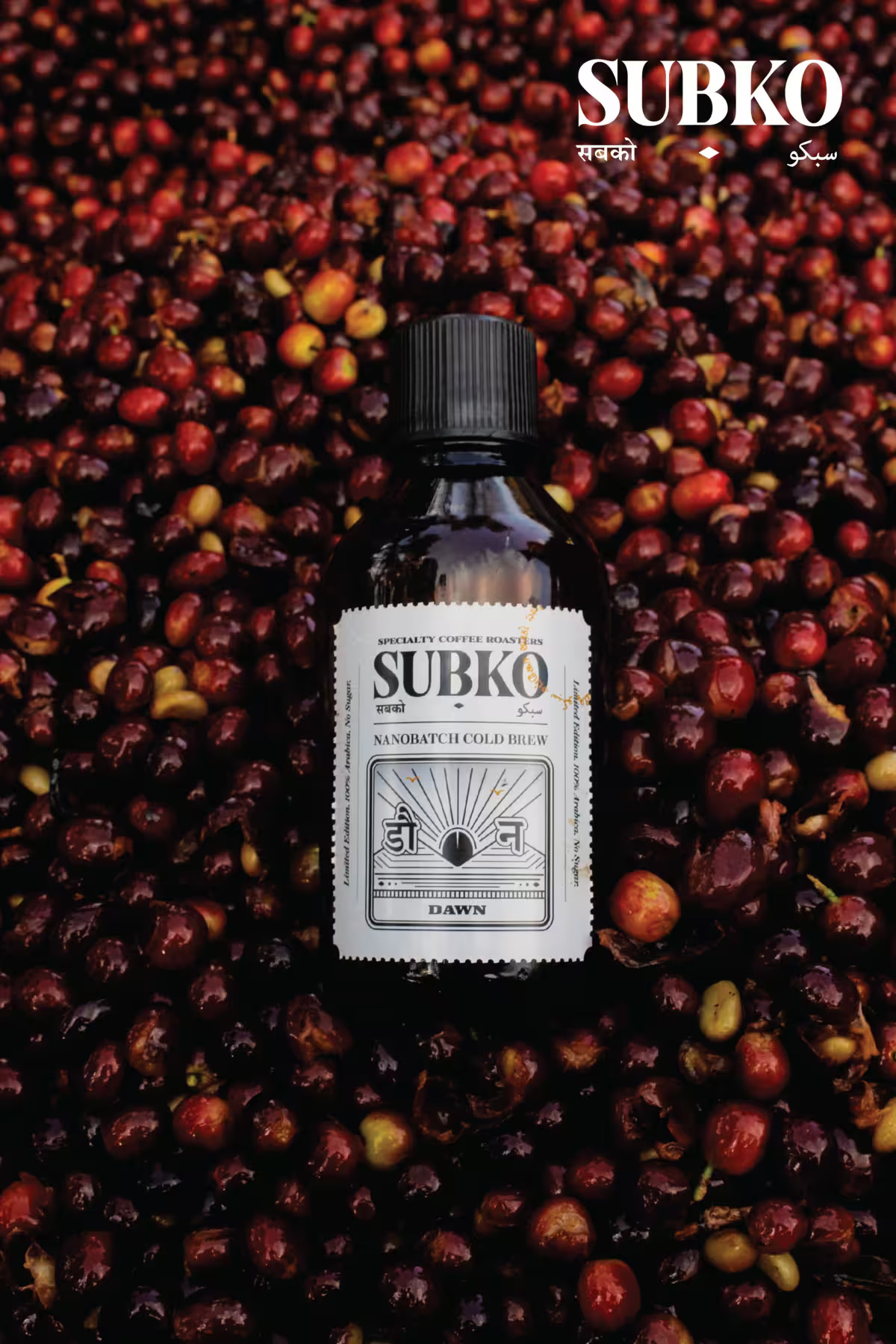
Waste Management / Circular Business Model
Question: How does Subko handle waste management? Is the “circular economy” something you think about and plan for in your business?
Subko’s Answer: At Subko, we aim to utilize waste as a valuable resource. We are planning on developing a dedicated waste management department and have already started working with Cascara, the by-product of the coffee cherry. We also partnered with Thaili, a brand which used waste coffee grounds to make shoes. In the future, we plan to use the husk, or chaff, to avoid waste after roasting. Our goal is to create a circular economy where every part of the coffee production process is utilized efficiently.
Our approach to waste management is rooted in the principles of the circular economy, where waste is minimized, and resources are reused and recycled. By transforming Cascara into a marketable product, we turn what was once waste into a valuable resource. This not only reduces waste but also generates additional income streams for our business and farmers. We are also exploring the potential of coffee husks as a renewable energy source or as a material for creating eco-friendly packaging. These initiatives reflect our commitment to sustainable practices and innovation. By continuously finding new uses for coffee by-products, we aim to lead the way in creating a zero-waste coffee production model, setting a standard for the industry.
Social Equity
Question: While many Western consumers are accustomed to drinking coffee as a daily cheap commodity ($5/cup), many coffee farmers living in the Global South are living below the poverty line. As coffee grows in popularity as a drink consumed locally by Indians, how does Subko approach social equity in your business model?
Subko’s Answer: Subko is deeply committed to social equity. We have introduced the VLGE project, which promotes direct trade with smallholder farmers, adding value to the supply chain and uplifting these farmers. Our direct selling approach ensures fair compensation and fosters a family-like relationship with our farmers. Initiatives like the Subko Microlot Festival facilitate economic growth and diversification with coffee and cacao. We also plan to implement a monthly income program for farmers, ensuring stable and fair earnings. Currently we have a direct tipping model enabled where anyone can scan the QR code and tip the farmers. In addressing social equity, Subko focuses on improving the livelihoods of coffee farmers, who often struggle with low income and market volatility.
Our VLGE project exemplifies our dedication to direct trade, cutting out intermediaries to ensure that farmers receive a fair price for their coffee. This model not only provides better financial stability but also empowers farmers by giving them a direct stake in the value chain. The Subko Microlot Festival showcases specialty coffee and cacao, drawing attention to the quality and diversity of products from smallholder farmers. This event promotes economic diversification and provides farmers with new market opportunities. Our direct tipping system allows consumers to support farmers directly, fostering a sense of community and appreciation for their hard work. These initiatives collectively aim to uplift farming communities and promote social equity within the coffee industry.
Export
Question: Most of the coffee consumed in America (where our Greener Beans team is based) is from places like Brazil, Colombia, Ethiopia, Hawaii, with increasing popularity and availability of beans from places like Indonesia, Honduras, and beyond. It’s rare to find Indian coffee beans in the US. Where does Subko sell most of your beans, and do you have plans to expand export partnerships to the US?
Subko’s Answer: While Indian coffee beans are rare in the US market, Subko aims to change that by introducing high-quality South Asian coffee to a global audience. Subko, a play on words meaning "from the subcontinent," emphasizes our focus on showcasing the rich heritage and unique flavors of coffee from South Asia. Our Green Bean Project is a strategic initiative that collaborates with partners in India and neighboring countries like Nepal to expand our export partnerships. This project aims to bring the distinct and high-quality beans from South Asia to coffee enthusiasts worldwide.
Over the next five years, we envision establishing a strong presence in international markets. Particularly in the markets such as the UAE, United Kingdom and United States with large south Asian diasporic communities and cultural rootedness, among other possible markets where Indian coffee is less known. Our efforts are centered on highlighting the unique characteristics of South Asian coffee to attract discerning coffee lovers. We recently showcased our specialty coffee at the London coffee festival where we received a good response along with the Dubai coffee festival. Slowly the people are realizing the unique flavors that South Asian coffee offers. Through these initiatives, Subko hopes to foster new opportunities for growth and recognition, ensuring that South Asian coffee receives the attention and respect it deserves on the world stage.
Certifications
Question: Certifications help verify that coffee products are fair trade and organic, but certifications are complicated and not perfect. How does Subko think about certifications as part of your business strategy?
Subko’s Answer: Certifications certainly hold weight in creating a credible standardization metric for impact, but we work with many organic practices and biodynamic farms that don’t hold the certifications for various reasons – mainly due to red tape and cost in getting them done in India. Still, we provide customers the same products and standards, even without the official certifications.
Outlook for the Future
Question: From your perspective, what are the most inspiring efforts in the coffee industry that give you the most hope for the next 5/10/20 years?
Subko’s Answer: The most inspiring efforts in the coffee industry involve sustainability and scientific innovation. At Subko, we are dedicated to microlot programs and scientific approaches to sustainability. These efforts give us hope for a future where high-quality coffee can be produced responsibly and sustainably, benefiting both the environment and the communities involved.The future of the coffee industry holds tremendous promise, driven by a growing focus on sustainability and innovation. At Subko, we are particularly inspired by initiatives that promote environmental stewardship and scientific advancements in coffee cultivation.
Our microlot programs, for example, allow us to produce high-quality coffee in small batches, emphasizing precision and sustainability. This approach not only enhances the quality of our coffee but also supports biodiversity and soil health. Scientific innovations, such as advanced breeding techniques and climate-resilient coffee varieties, offer hope for a more resilient and sustainable coffee industry. These efforts align with our vision of producing exceptional coffee while minimizing our environmental footprint and supporting farming communities. By embracing these inspiring trends, we are optimistic about the potential to create a more sustainable and equitable future for coffee production.
Pride
Question: What makes you most proud to work for Subko?
Subko’s Answer: What makes us most proud at Subko is our deep connection with smallholder farmers and our unwavering commitment to highlighting South Asian coffees. These farmers are the heart and soul of our brand, and their hard work, dedication, and resilience inspire everything we do. By creating direct links between farmers and consumers, we ensure fair compensation for their labor, emphasizing traceability and transparency. This approach fosters trust and allows consumers to connect with the origins of their coffee, understanding the journey from farm to cup.
Our brand ambassadors are not celebrities but the very farmers and planters who cultivate our coffee. Their stories, struggles, and triumphs are brought to the forefront, showcasing their resilience and commitment to quality. We take immense pride in bringing the unique flavors and rich heritage of South Asian coffees to the global stage, emphasizing the diverse and exceptional quality of this region's coffee.
Our efforts go beyond mere business transactions; they aim to create a positive impact on the lives and communities of our farmers. Witnessing the benefits of our work on these communities is incredibly rewarding and fuels our passion for sustainable and ethical coffee production. We believe that every cup of coffee should tell a story of hard work, dedication, and ethical practices. This dedication to ethical practices and the remarkable stories of our farmers form the foundation of our success and the essence of our brand. At Subko, we are proud to stand by our farmers, elevate their voices, and bring their exceptional coffee to the world.
Additionally, all of our design is meticulously curated by our in-house team, ensuring a cohesive and thoughtful brand experience. Our packaging, store interiors, and branding elements are all designed with a deep appreciation for South Asian art and culture, creating a unique and authentic aesthetic. The traceability of each cup is also noteworthy, highlighting our commitment to transparency and quality in every sip. Our attention to detail extends to every aspect of our operations, from the sourcing of beans to the final presentation of our coffee.
Subko is dedicated to pushing the boundaries of coffee innovation while staying true to our roots. We continuously experiment with new processing methods and flavor profiles, collaborating with our partner farmers to develop unique and exceptional coffees. This collaborative spirit and relentless pursuit of excellence set us apart in the specialty coffee industry, reinforcing our mission to bring the best of South Asian coffee to the world. Through our efforts, we strive to build a sustainable and inclusive coffee ecosystem that benefits everyone involved, from the farmer to the consumer.
Farm Photos
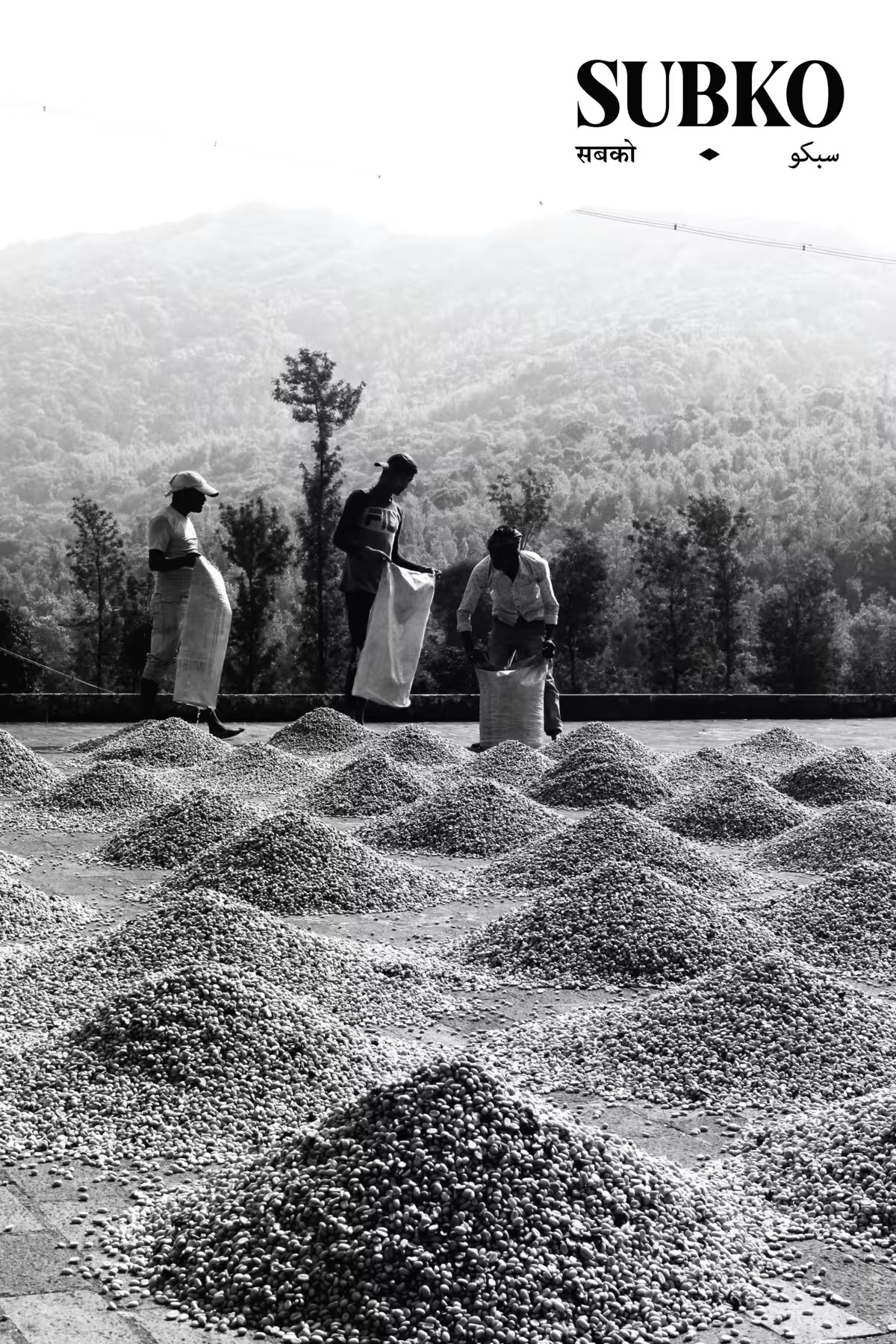
Cafe Photos
